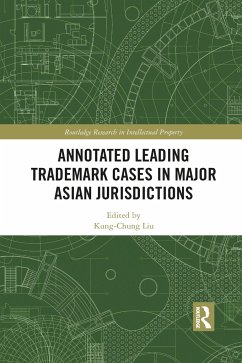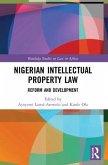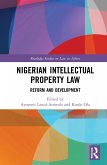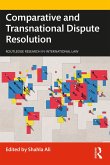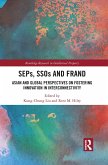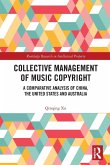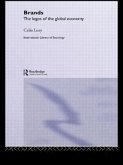There has been little or no study on trademark laws in Asia on a cross-jurisdictional level. This book aims at filling the existing gap and provides a comprehensive overview of trademark laws of eight major Asian jurisdictions and their most-updated trademark case law. The book analyses six of the principal issues that best reflect Asian features in trademark law and trademark development.
The cases in the book are principally the most authoritative decisions, usually the first to deal with certain new emerging issues, or the first to apply particular statutory provisions in the respective jurisdiction. Also included are a small number of direction-changing, outlying or even controversial decisions. Each case report is divided into six sections: summary, legal context, facts, reasoning of the court, legal analysis, and commercial or industrial significance.
Readers will find this book useful in both its overview ofthe legal context and how those cases are to be interpreted legally and commercially.
The cases in the book are principally the most authoritative decisions, usually the first to deal with certain new emerging issues, or the first to apply particular statutory provisions in the respective jurisdiction. Also included are a small number of direction-changing, outlying or even controversial decisions. Each case report is divided into six sections: summary, legal context, facts, reasoning of the court, legal analysis, and commercial or industrial significance.
Readers will find this book useful in both its overview ofthe legal context and how those cases are to be interpreted legally and commercially.
"This book provides rich insights on current trademark issues in major Asian jurisdictions, and covers the most vital and practical topics on trademark law. The authors are the leading scholars in Asia, offer engaging and thought-provoking analysis. With the book's valuable comparative perspective, it is an excellent reference for practitioners and academics to understand the legislative trends and how different jurisdictions interpreted and applied the rules." - Gi-Kuen Jacob Li, Assistant Professor, Institute of Law for Science and Technology, National Tsing Hua University, Taiwan
"Given the rapid growth of the Asian market, protecting trademark rights in Asia has become more important than ever before. Against this backdrop, Annotated Leading Trademark Cases in Major Asian Jurisdictions presents a much-needed examination of Asian trademark law through in-depth analysis of landmark cases. Led by Professor Kung-Chung Liu, contributors to this volume explore theoretically significant and practically relevant issues concerning Asian trademark law. This volume is a major contribution to trademark scholarship."- Haochen Sun, Associate Professor of Law, The University of Hong Kong
"Given the rapid growth of the Asian market, protecting trademark rights in Asia has become more important than ever before. Against this backdrop, Annotated Leading Trademark Cases in Major Asian Jurisdictions presents a much-needed examination of Asian trademark law through in-depth analysis of landmark cases. Led by Professor Kung-Chung Liu, contributors to this volume explore theoretically significant and practically relevant issues concerning Asian trademark law. This volume is a major contribution to trademark scholarship."- Haochen Sun, Associate Professor of Law, The University of Hong Kong

